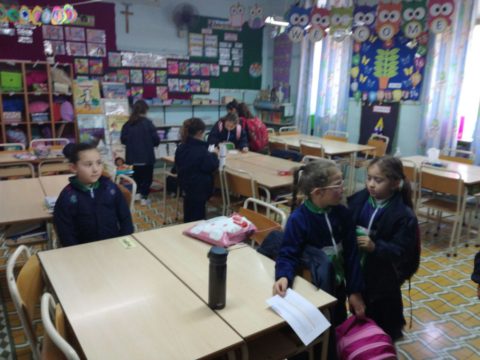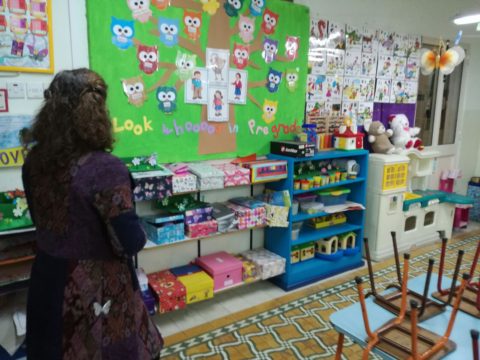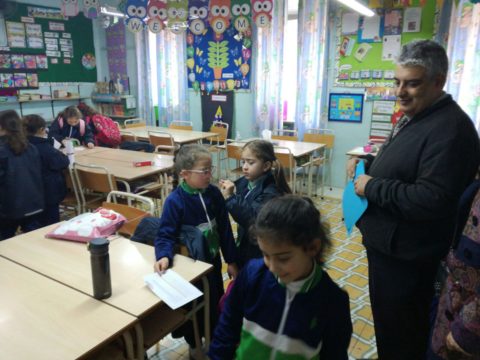It has to be Utopia…
When me and my colleague Elina were interviewed by Sunday Times of Malta – believe me, that isn’t the most typical work assignment for us… 😉 the interviewer told us that she had heard comments from the participants of our workshop saying “The Finnish Education sounds so good, it has to be Utopia…”.
Same kind of feedback we got ourselves from the Maltese teachers and headmasters that took part in our workshop Promoting Learning – The Finnish Way the day before the interview. For us calling Finnish education Utopia sounds somehow unbelievable, because we are aware of the several challenges we have in our basic education at the moment. And we frankly told about them for the participants in the workshop, too.
The comment and feedback made us think, though. For sure have we done something right in Finnish education, when so often the education experts and professionals from other countries immediately understand the reasoning behind our practices and cherish them.
Here are some of the facts about Finnish education that Maltese teachers reacted very strongly about: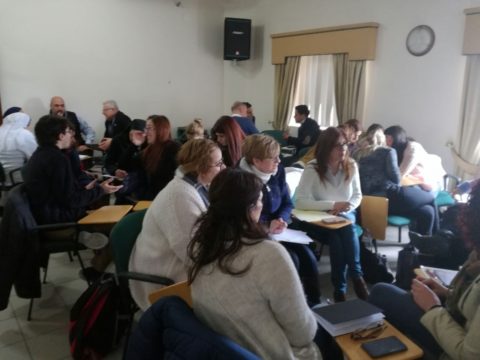
1) In Finland children start the school relatively late (at the age of seven), but still get excellent learning results in international comparisons. Finnish system is based on the results of the scientific research on learning and development psychology. According to those studies it doesn’t improve the learning results to begin very academic type of teaching too early (i.e. when children’s brains have not developed enough). Maltese teachers immediately understood this based on their own experiences.
It’s not like Finnish children don’t learn much before the school education. Quite the contrary: in the early childhood education (in kindergartens, clubs etc.) they learn a lot through play and interaction with other children and adults. During those years they develop many useful meta-skills that make learning easier later when new skills and concepts are introduced to them at school. The important thing is that the Finnish early childhood education is not school-like at all, but follows the children’s natural development.
The participants felt that these same principles should be applied to Maltese school system as well. They suggested that the school should start at the age of six and before that the early childhood education should be non-formal.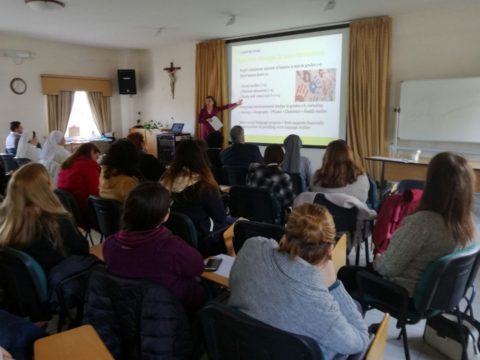
2) If the curriculum is too rigid or too packed with substance, teachers can not exercise their pedagogical expertise fully. Finland just got a new curriculum and one important goal in the curriculum reform has been to ensure, that there is enough room and time for teachers to make pedagogically wise decisions: i.e. how to teach certain topic and how to integrate different school subjects. Teachers’ autonomy is one of the corner stones of Finnish education.
In many countries the situation is quite different. The curriculum is packed with substance and teachers are struggling to go through all the demanded topics. There is very little room for alternative pedagogical approaches. Looking at learning results it seems that this Finnish “Less is More” attitude is bringing us good outcomes. It’s not how much information we try to deliver to students, it’s how well we facilitate the students’ learning.
3) Finland is strongly increasing physical activity during school days as well as increasing the amount of various different teaching and learning methods. In many countries pupils are however supposed to sit still for a long period of time listening to teacher and still learn effectively.
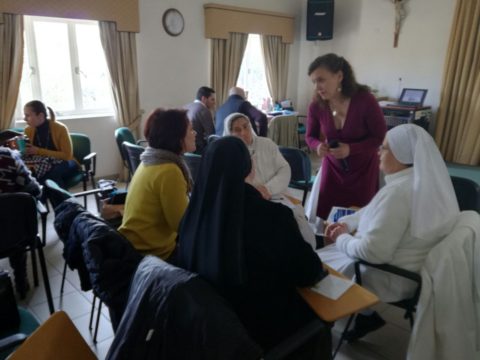 William Doyle explains it well in his article: “Children’s brains work better when they are moving —.Not only do they concentrate better in class, but they are more successful at ‘negotiating, socializing, building teams and friendships together.’
William Doyle explains it well in his article: “Children’s brains work better when they are moving —.Not only do they concentrate better in class, but they are more successful at ‘negotiating, socializing, building teams and friendships together.’
Finland leads the world in its discovery that play is the most fundamental engine and efficiency-booster of children’s learning. The nation’s children learn through play until age 7, and then are given guaranteed 15-minute outdoor play breaks every hour of every single school day (regardless of the weather) until high school.”
The importance of physical activity was obvious to the Maltese teachers, too. They very clearly saw the need to increase students’ physical movement during the school days. Increasing physical activity would enhance pupils’ health, motivation, concentration and overall wellbeing. The downsizing of syllabi is a prerequisite for getting more time for physical exercise.
The participants also pointed out that there should be more versatile teaching methods in Maltese schooling. Learners are different and they benefit from various different teaching and learning methods. The participants called for more hands-on, project-based learning methods as well as learning through integrating subjects (a cross-curricula approach).
All this made me think… We met incredibly talented, enthusiastic teachers in Malta, who strongly agreed with us on many of the basic principles in promoting learning. This is what happens almost every time we train teachers from different countries. It seems that the teachers around the globe have a more common view about good education than those who design education systems.
Too often it seems it’s the system who fails the teachers. The teachers can’t do their best in the prevailing circumstances. Maltese teachers strongly expressed that teachers should be trusted, respected and valued in order them to use their full professional capacity.
I must say, the visit to Malta was an amazing one… We had the opportunity to meet the Minister of Education and many of the country’s top politicians and had interesting discussions with them. They all acknowledged the need to develop education. Their deep interest in educational matters really give educators in their country hope. Hopefully the voices of teachers are also heard in the reform process, so that Utopia can become Reality.
Thanks to Dr. Kenneth Vella, who made this incredible visit possible!

